Fall/Winter 2025-26
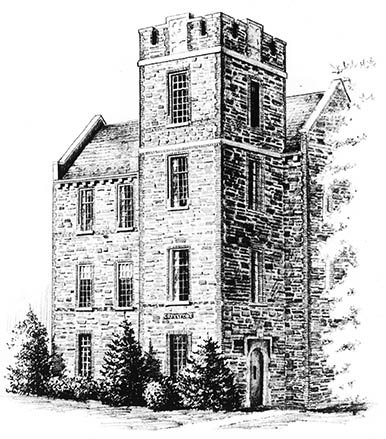
In memory of alumni, friends, faculty, and staff of Marist that have passed away.
AlumniNorman E. Gagnon ’50Br. Eugene Trzecieski, FMS ’52The Rev. Owen J. Lafferty ’61Br. Bernard G. Matthews ’61Edward M. Wilcenski ’61George M. Conboy ’62Lloyd G. Smiley ’62John James McGalagly ’63John P. O'Donnell ’63Dennis F. Tierney Jr. ’63Anthony J. Causa ’65Edward T. Towsley ’65Br. John A. Allen, FMS ’66Br. Sumner Herrick, FMS ’66Nicholas J. Pulichene ’66Casper Barnett Swaney ’66Francis Michael Xavier Corliss ’67Gordon S. Foster ’67John J. Glynn ’67M. Kevin Bearese ’68Arthur J. Duane ’68Martin John Scanlan III ’68Mark A. Breckenridge ’69Charles H. Button ’69Frank W. Fredericks ’69John Kevin Gilhooly ’69Br. Donald Nugent, FMS ’69Frank P. Russo-Alesi ’69Francis G. Sainsbury ’69Dean A. Stewart ’69Dr. Carl Edward Cerniglia ’70Martin J. Gyves ’70John J. Hurley Jr. ’70William Iacobellis ’70Joseph P. Iamascia ’70William H. Laman ’70Dominick LoBosco ’70Thomas Paul Nocket ’70Kenneth C. Russell ’70Roberts T. Mallabar ’71Roy W. McLaren ’71John B. Rizzuto ’71James Anthony Seirmarco ’71Thomas A. Tucker ’71Arthur F. Haab ’72Bill C. Davis ’73Laurie Joseph (LJ) Cormier ’74Charles W. Correll Jr. ’74Elizabeth A. Mullen ’74Kevin F. Nash ’74Edwin C. Thompson Jr. ’74Geraldine J. Alessi ’75Jean Forrestal-Seloske ’75Janet A. Kanwit ’75MAEdward J. Mulvey ’75John Joseph Tracy Jr. ’75James L. Dziedzic ’76John Hughes, Jr. ’76Nancy Dervin ’77Charles V. Gormley ’77Francis E. King ’77Vincent R. Capozzi ’78Edward G. Matthews ’78Dean P. Mogan ’78Mark Joseph Bierbower ’79Kathleen Merrins-Johnson ’79MAEdward Vitus ’79David B. Wasilenko ’79Thomas R. Watson ’79Robert E. Davis ’80MBAJulie M. Quirindongo ’81Thomas J. Serkes ’81Eugene N. Feldman ’82Donald C. Miller ’82MBAWilliam C. Nolan ’82Edward V. Tucker ’82MPABruce H. Link ’83Frank N. Lorica ’83Zita A. Gabrik ’84 William David Brinnier IV ’85MAEmory John Butcher Jr. ’85Steven D. Eastwood ’85Elaine C. Midulla ’85Dwight L. Moody ’86MSChristin A. Rossi ’86James P. Fedoryk ’87SPC Jeffrey D. Moore ’87William E. Jones Jr. ’88Georgette L. Kurdt ’88Richard S. Martino ’88Kevin J. Gillespie ’89Jay John Duhamel ’90Terrence R. Kleissler ’90Joseph F. Purschke ’90Irene Bunin ’92Jeffrey L. Janota ’92Christopher J. Shea ’92Katie Turner ’92Matthew Antonecchia ’93Michael J. Gagliardi ’93Sgt. Brian E. Mohl ’93Jo Carol Smith, JD ’95Barbara D. Davis ’97Helen M. de Prado ’97Amity Currie ’98MAAlbert Sieh ’99/’20MSDavid M. Brandon ’00Katie A. Salerno ’00Lisa M. Whelan ’00MSScott William Donaldson ’01Susan M. Leader ’01Jessica L. Garbus Stefanowicz ’01Joseph V. Tomaszewski ’01Joshua R. Van ’02Susan Tully Tooker ’05Melissa Anne Gray ’08Jillian Elizabeth Price ’08Natalie M. Fouche ’11Nicole Marie Wiley ’14Kristofer David Ariola Bautista ’15/’20MSSpenser Steven Rose ’15 FriendsAtwood L. EdwardsGeorgieann R. ElmendorfJoan HrabanMary Ellen KondysarMarion M. KingDr. Richard J. McGovernTeresita PletcherPamela SmithAmbassador William vanden Heuvel Faculty & StaffKathy L. Butsko ’07/’09MAMary Ann HoffmannZhaokai Yan
01 Jan 2022

Winter 2022
Updates on marriages of graduates.
01 Jan 2021
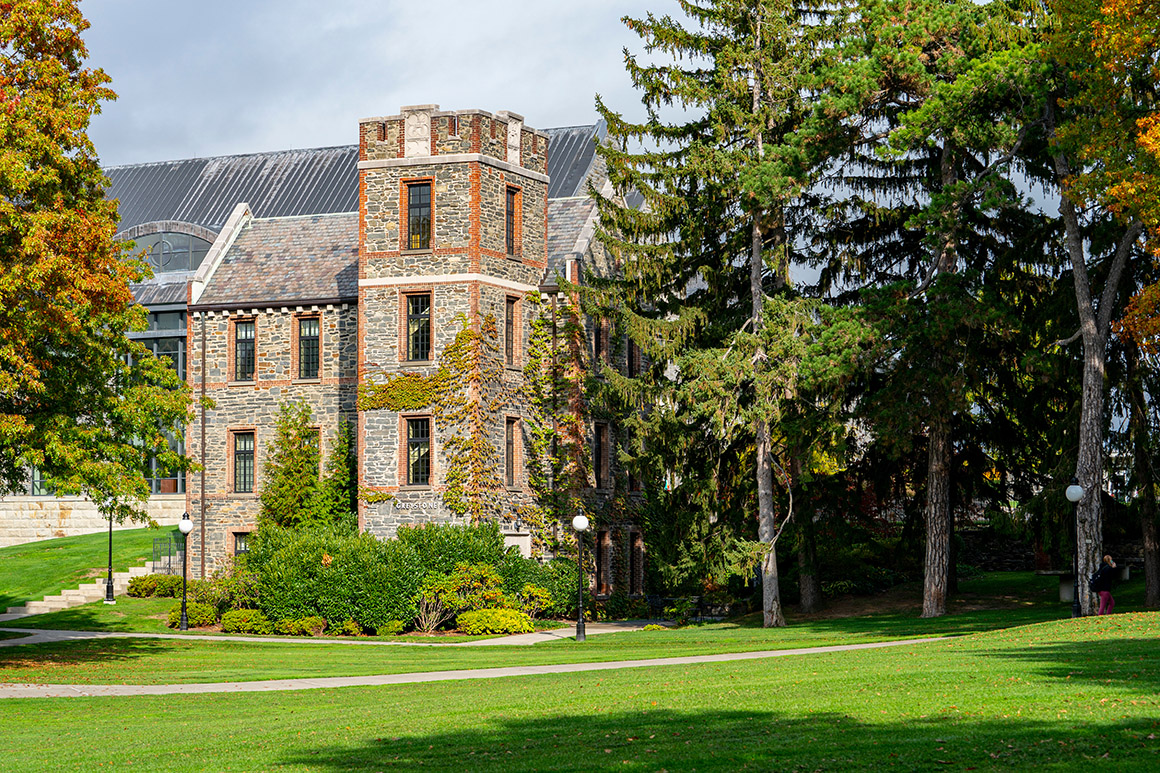
Discover news and updates from your fellow alumni
Discover news and updates from your fellow alumni: Click here and use the dropdown menu to search by decade. Share your news with the Red Fox community! You can easily and securely update your information online by logging into Marist Connect with your Marist account and password at maristconnect.marist.edu. You can also email the Alumni Office at maristalumni@marist.edu or call (845) 575-3283.
21 Jul 2021
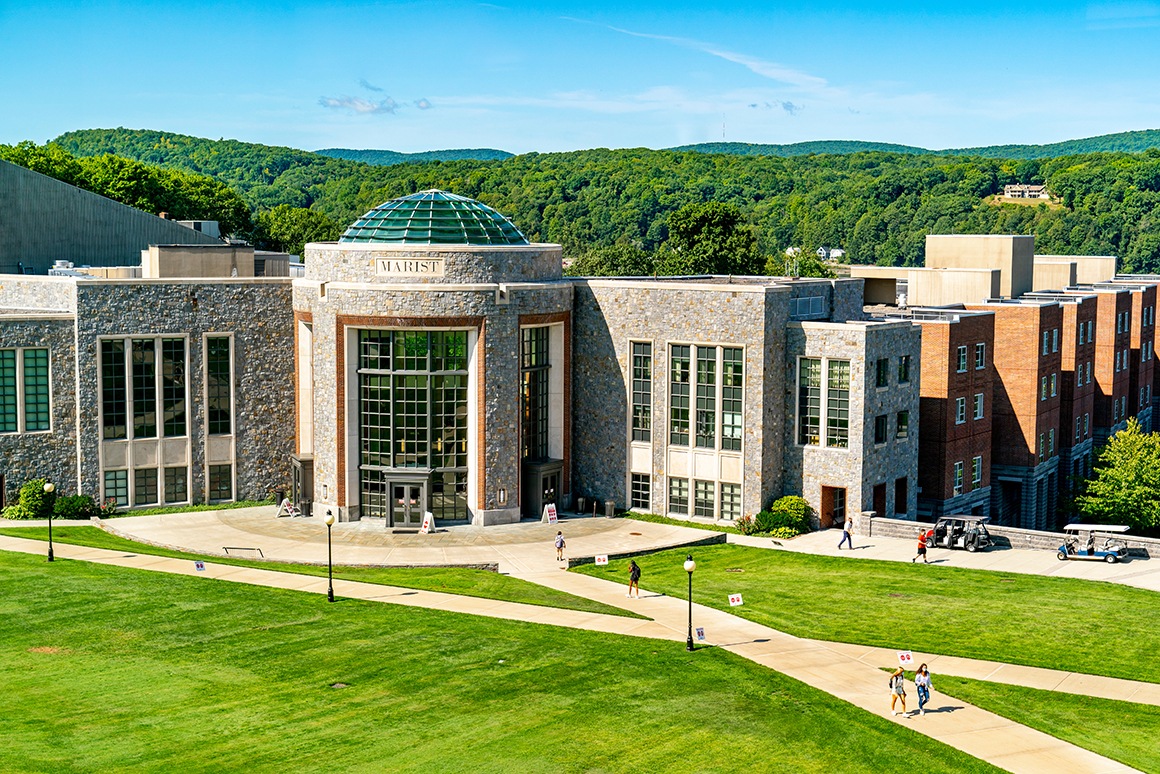
The College’s bachelor’s degree program in professional studies, master’s degree in business, and MBA program were named “Best Online Programs” by U.S. News.
Three of Marist College’s online offerings were ranked in U.S. News’s “Best Online Programs” lists for 2021.The programs included are the bachelor’s degree program in professional studies; master’s degree in business (non-MBA); and master’s in business administration (MBA).An early adopter of online programming, Marist has long been a leader in distance learning. This wealth of experience benefited the College greatly when all courses pivoted to fully remote during the spring 2020 semester due to COVID-19. In fall 2020, the College had a successful in-person reopening with courses ready to switch to online if needed.“We appreciate the continued recognition from U.S. News for our online programs. The College is fully committed to innovation and the online format benefits a variety of students—including working adults—by delivering flexible, rigorous, and efficient programs that lead to career-enhancing degrees. The lifetime value of a college degree has been well-documented; it is imperative to offer higher education opportunities that are widely accessible,” said Sean P. Kaylor, vice president for enrollment, marketing, and communication.For the 2021 ”Best Online Programs” ranking, U.S. News assessed a record 1,641 online programs. The list measures overall academic quality; complete rankings are available at usnews.com.Marist prides itself on flexibility in its offerings to reach students of all backgrounds and life situations. Recognized program highlights include:Marist’s Online BA/BS Majors in Professional Studies and Management StudiesThe professional studies major is an integrative, accelerated bachelor's degree completion pathway that can be customized to draw upon previous college, service, and professional experience while learning new career-related skills. Multiple degree concentration options and accelerated eight-week courses, in both online and hybrid formats, allow adult students to tailor this option to meet their interests and career goals and finish on a schedule that suits their needs. For more information on Marist’s online BA/BS in professional studies, visit the School of Professional Programs website.The management studies major is designed for the adult learner who is motivated to advance their career. A compact yet comprehensive general management curriculum forms the heart of this accelerated bachelor’s degree completion program. It is designed to combine the insights of the Marist faculty with guidance from practicing professionals.Marist’s Online Business Graduate ProgramsMarist offers a 100 percent online master’s degree in public administration. The MPA program features distinct areas of concentration including ethical leadership, healthcare administration, public management, analytics, and nonprofit management. The MPA program is accredited by NASPAA (Network of Schools of Public Policy, Affairs, and Administration), the recognized global accreditor for graduate programs in public policy, public affairs, public administration, and public and nonprofit management. In 2018, Marist launched a master’s in professional accountancy program.For more information about these offerings, visit the School of Management’s MPA and MS in professional accountancy siteMarist’s Online MBAMarist launched New York State's first AACSB-accredited 100 percent-online MBA program in 1998, one of the first such programs in the nation. AACSB is the premier business school accrediting body. Also known as the Association to Advance Collegiate Schools of Business, it accredits fewer than five percent of business programs worldwide. The program was recently recognized by The Princeton Review as a Top 50 Online MBA Program.For more information on the Marist MBA program, visit the MBA program website.
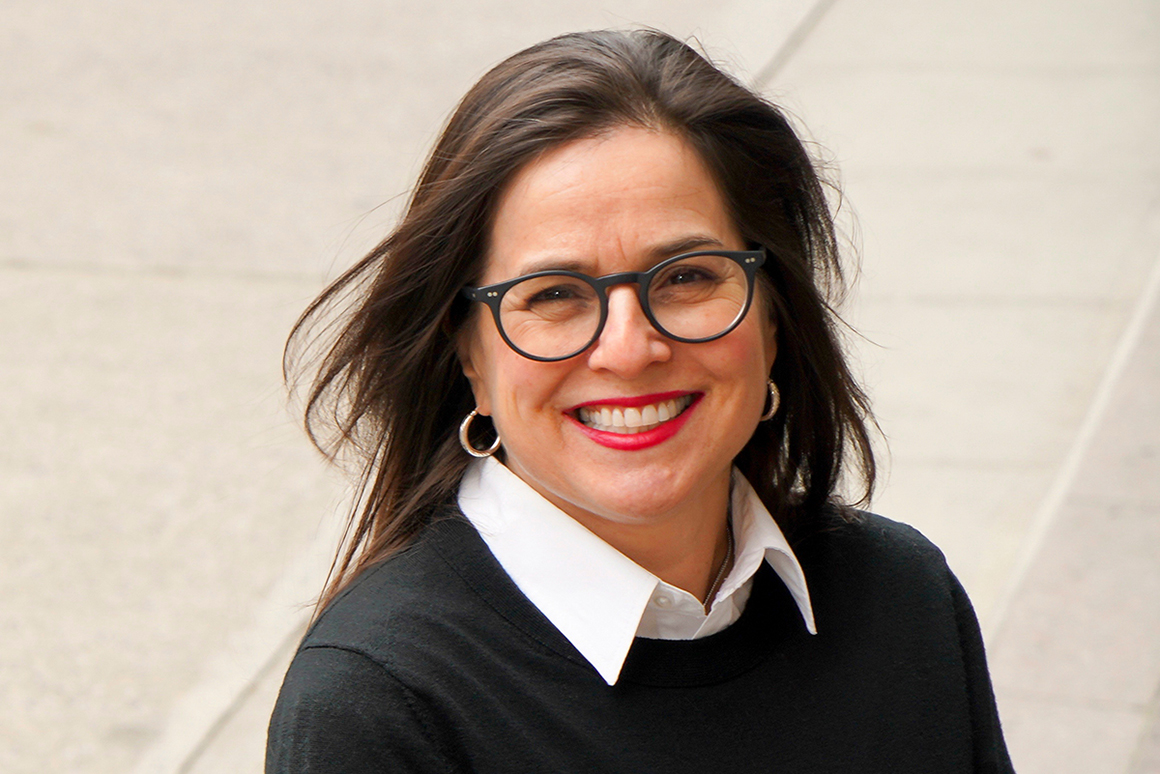
Dr. Jacqueline Reich has been appointed dean of the School of Communication and the Arts, effective Monday, July 12. Reich has a robust background in higher education and brings a wealth of knowledge to Marist.
Dr. Jacqueline Reich has been named dean of the School of Communication and the Arts.Reich came to Marist from Fordham University, where she was professor of communication and media studies and recently finished a seven-year term as chair. She was also a member of the doctoral faculty at the University of Florence’s History of Art and Performance PhD program. As department chair, she oversaw the creation of four undergraduate majors and five new minors, an interdisciplinary program in new media and digital design, and a new master’s program in public media. Under her leadership, enrollments grew 40 percent in undergraduate and 50 percent in graduate programs. In addition, she supervised more than 60 full-time and part-time faculty. Prior to Fordham, Reich spent 18 years as an assistant and then associate professor of cinema and cultural studies at Stony Brook University. There she was responsible for the revision of three undergraduate majors and two minors, participated in the merger of two departments into one, and supervised a staff of nine in her role as faculty director of the Undergraduate College of Arts, Culture, and Humanities. During her career she has served on a number of university-wide committees. Reich is the author of two books and co-author of another, including The Maciste Films of Italian Silent Cinema (Indiana University Press, 2015), which won Best Book on Film and Media from the American Association of Italian Studies and was a finalist for the Best Book on Film for the Theatre Library Association. Other honors and awards include a visiting professorship at the University of Florence and a Howard Fellowship from the George A. and Eliza Gardner Howard Foundation at Brown University. She has an MA and PhD from the University of California at Berkeley and a BA from Dartmouth College. She divides her time between Yonkers and Garrison, NY, with her husband, two sons, and two dogs.
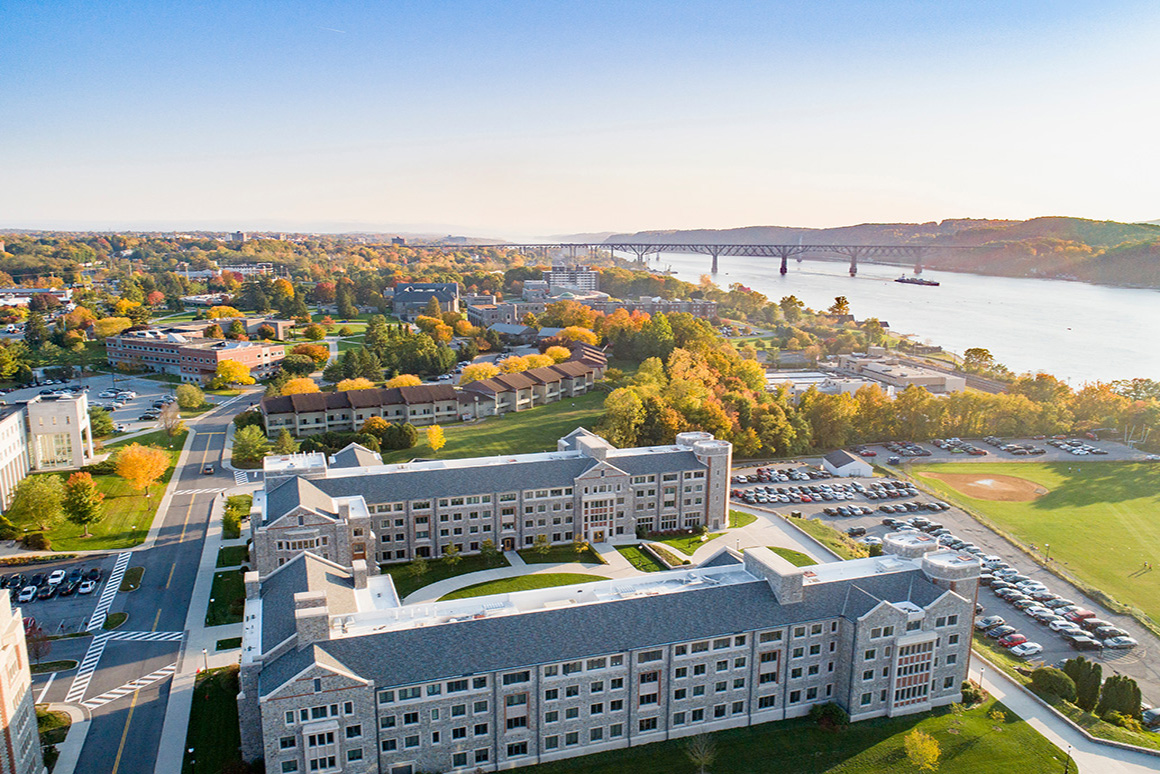
Marist is once again recognized as a Top and Most Innovative institution in the Regional Universities–North category.
Marist was once again recognized as a Top 10 Regional University – North by U.S. News and World Report. In addition, the College was also named one of the Most Innovative Schools in the region (#2 overall) and highly ranked for its focus on undergraduate teaching (#7 overall). These last two rankings are based upon surveys of college presidents, provosts, and admissions deans who were asked to nominate schools making substantial innovative improvements in the higher education industry.“Over the last decade Marist has been very intentional in how we have built our academic programs, which combine very distinctive educational opportunities and high-impact global experiences with an intimate liberal arts approach that provides highly personalized attention from faculty,” said Thom Wermuth, vice president for academic affairs. “These are the very reasons why our students are very satisfied with their experience at Marist and are highly successful after graduation.” A few of these areas are highlighted below:Study abroad: Study abroad is one of many experiential learning opportunities that add value to the Marist experience for students. Ranked #3 in the United States for study abroad by Open Doors Report, Marist creates pathways for its students to grow by utilizing the world as a classroom. Marist offers two very unique full-year study abroad programs for first-year students in Florence, Italy, and Dublin, Ireland. Marist’s Florence branch campus was founded to be the international face of the College’s commitment to global education and serves as the hub for our study abroad program. Over 50 percent of all Marist students study abroad during their undergraduate experience.Real-world experience: Marist has created numerous Centers of Excellence at its main campus in New York that provide unique opportunities and combine in-classroom learning with real-world professional experiences. These centers include the Hudson River Valley Institute, the Marist Poll, the Marist/IBM Joint Study, the Center for Civic Engagement and Leadership, and the Center for Sports Communication, among others. In addition, Marist has established significant partnerships with industry leaders including but not limited to the FDR Presidential Library & Museum, ESPN, and American Red Cross, to name a few. The College leverages these relationships to enhance the educational experience for our students. Approximately 85 percent of Marist students participate in at least one credit-bearing internship during their undergraduate experience. Accelerated degree programs: Marist currently offers six dual degrees which provide students with unique and affordable options to work toward their bachelor's and master's degrees simultaneously. Through these programs, students streamline their academic journey and are equipped with the knowledge and skills to enter the workforce. Dual degree programs offered at Marist include:• Accounting (BS)/Professional Accountancy (MS)• Communication (BA)/Integrated Marketing Communication (MA)• Computer Science (BS/MS)• Information Systems (BS/MS)• Teaching (BA/MA)• Psychology (BA)/Educational Psychology (MA)Marist’s first-rate educational experience is validated by its students. Ninety-five percent of students are satisfied with their college experience, highlighted by a strong first-year retention rate of 88 percent. Marist’s graduation rate is among the highest in the country at 85 percent, and following graduation, its five-year rolling average indicates that 97 percent of students are employed or enrolled in graduate school within six months.
21 Sep 2021
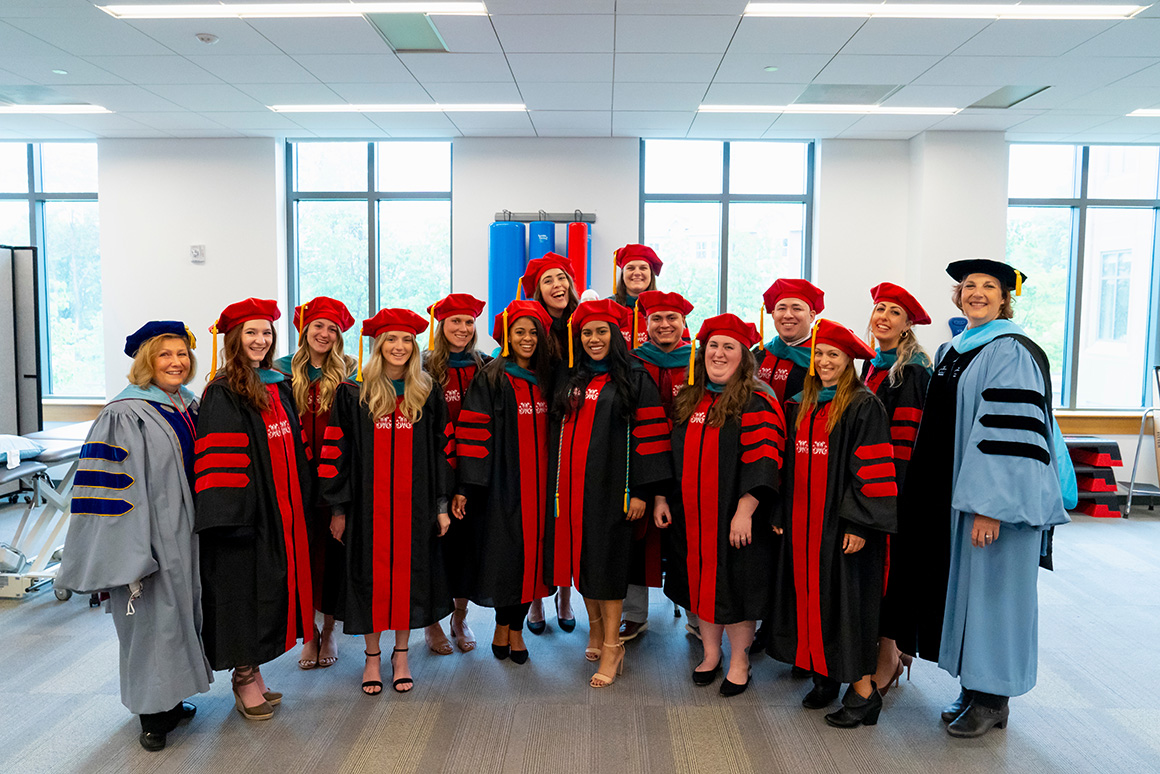
Fourteen earn degrees from Marist’s Doctor of Physical Therapy Program, the College’s first doctorates.
Three years ago, 14 young adults began their studies toward Marist College’s Doctor of Physical Therapy degree, the College’s first doctoral program. In December 2020, they completed their journey. This past spring, prior to returning to campus for their commencement in May, several of the graduates looked back fondly on how Marist’s DPT program has launched their young careers. Established in the Allied Health Building across Route 9 from Marist’s main campus, the program is designed to prepare students for the National Physical Therapy Examination and for successful careers as doctors of physical therapy. Inaugural DPT graduates credit Claudia Fenderson, PT, EdD, the program’s director, for selling them on the brand-new program. “I had a lot of faith in Dr. Fenderson’s reputation because she had been a program director at a different college for a number of years,” said graduate Katherine Whitman.A hugely impactful part of the program was its faculty, always available to help students with anything and offer experience from varied backgrounds. Students stay with the same cohort throughout the program, and all of their courses are taught by the program faculty, who get to know the students extremely well. In addition to traditional lectures, students and faculty engage in hands-on experiences in multiple lab courses. Additionally, students have a faculty advisor who assists them during their three-year tenure. “The close interaction between faculty and students allows for support of the students academically, professionally, and emotionally,” said Fenderson. Having such a small cohort allowed the students more access to professors, and they took advantage of it. The faculty also brought in professionals from the area to speak with students and sometimes provide guidance in the lab. The program uses a variety of labs to provide students experience with the same equipment they will use in the field. It also incorporates volunteer work into its 115-credit curriculum. The mix of lab and volunteer service work provided a well-rounded pathway to becoming a physical therapist. Yara Adely was a big fan of the service-hours requirement because “it really put you in the community, advocating for all your future clientele in a sense…It just makes you feel like you’re making a difference.” The program provided several ways to accrue those hours. Adely mentioned fundraising walks for Parkinson’s disease and Alzheimer’s disease and filling backpacks with school supplies for kids in the area. Madison Ward was one of four students to be selected for a medical mission trip to Ecuador in February of 2020. The week-long trip placed the students in hospitals to provide physical therapy services, mostly to children. The method of establishing professional clinical rotations was beneficial, too. Students are required to have four full-time clinical rotations, each of which features working in the field in a different way. At Marist, Whitman explained, students integrated their clinical work with their classroom instruction, whereas other programs have all clinical work at the end of their programs. Students were also able to choose their clinical sites themselves. The only requirement was that they had to work in at least one hospital setting and one outpatient setting. “Some schools choose your rotations for you and I’m so glad Marist lets you participate in the process,” Whitman said. Spending so much time as a cohort allowed students to form close relationships. Going through the same stressful classes and studying together created a unique and tight bond. They still keep in touch with one another and will all attend a wedding for one of their DPT classmates this summer. “I think that’s what helped us get through, too. We had the support of each other,” Ward said. The students weren’t shy about offering their input, Fenderson said, which was valuable in shaping the program. “The first cohort understood that their feedback was valued and necessary as it was used to inform the decision-making process about many areas of the program including the curriculum, teaching methodology, and the need for additional resources. When they engaged in full-time clinical experiences, the students provided information regarding their perceptions of strengths of the program and areas needing improvement. This input all factored into the success of the program.”In 2020 the program was granted accreditation for five years by the Commission on Accreditation in Physical Therapy Education. Five-year accreditation is the maximum period granted to a new DPT program.Some of the highlights of the past three years, said Fenderson, was observing the students “as they advanced to becoming such amazing, caring professionals, seeing their dedication to service of the local and global communities, watching their passion for helping patients evolve and flourish, and of course, developing close connections with these remarkable graduates.” Having 100 percent of the students pass the National Physical Therapy Exam was also a high point, she added.Although the cohort had almost completed the program when the coronavirus hit, the pandemic did have some implications for their studies. Clinical rotations were thrown off-kilter and students had to finish most of their classes online, which is extremely difficult for a profession and course of study that’s so hands-on. “The clinical experience is an invaluable part of the curriculum. The purpose of clinicals are not only for students to demonstrate the skills they have learned, but to continue their education in ways we can not simulate in the classroom. Students return after each rotation more confident in their skills and better able to absorb the new material they are taught. As a clinician and an educator, this is very exciting to observe,” shared Julie Fineman, PT, EdD, the program’s Director of Clinical Education. The pandemic also affected the job market. Ward said that jobs she was eyeing in the Hudson Valley began offering only part-time or per-diem work or reduced work time and/or salaries. Still, opportunities were out there. Whitman is a physical therapist at Moriarty Physical Therapy in nearby Lagrangeville, NY. Adely works in the outpatient department of Burke Rehabilitation Hospital in White Plains, NY, where she worked per diem as a DPT student. Ward is a physical therapist at Professional Physical Therapy on Long Island, NY, and works part-time for Healthie as a marketing associate.Fenderson is proud of the inaugural class. “Witnessing their graduation marks the end of their three-year journey,” she said. “It is a milestone for the Doctor of Physical Therapy Program but also one for Marist, as this is its first doctoral offering. For the DPT Program, this is the culmination of a six-year journey the spans the demonstration of the need for the program, building support from the community, gaining state approval, recruiting faculty, staff, and students, and finally gaining full national accreditation. This moment is the result of the unwavering dedication and commitment of the faculty and so many at the College. “We were fortunate to have accepted and graduated an extremely talented cohort of students who are making important contributions to our profession and enriching the lives of their patients.”Being the first group of students to take on the program, as well as the first to earn doctoral degrees from Marist, is something the graduates hang their hats on, especially because everyone in the original cohort made it all the way through. “It really makes my heart happy,” Adely said, “knowing that we were able to shape the program to what it is today.”
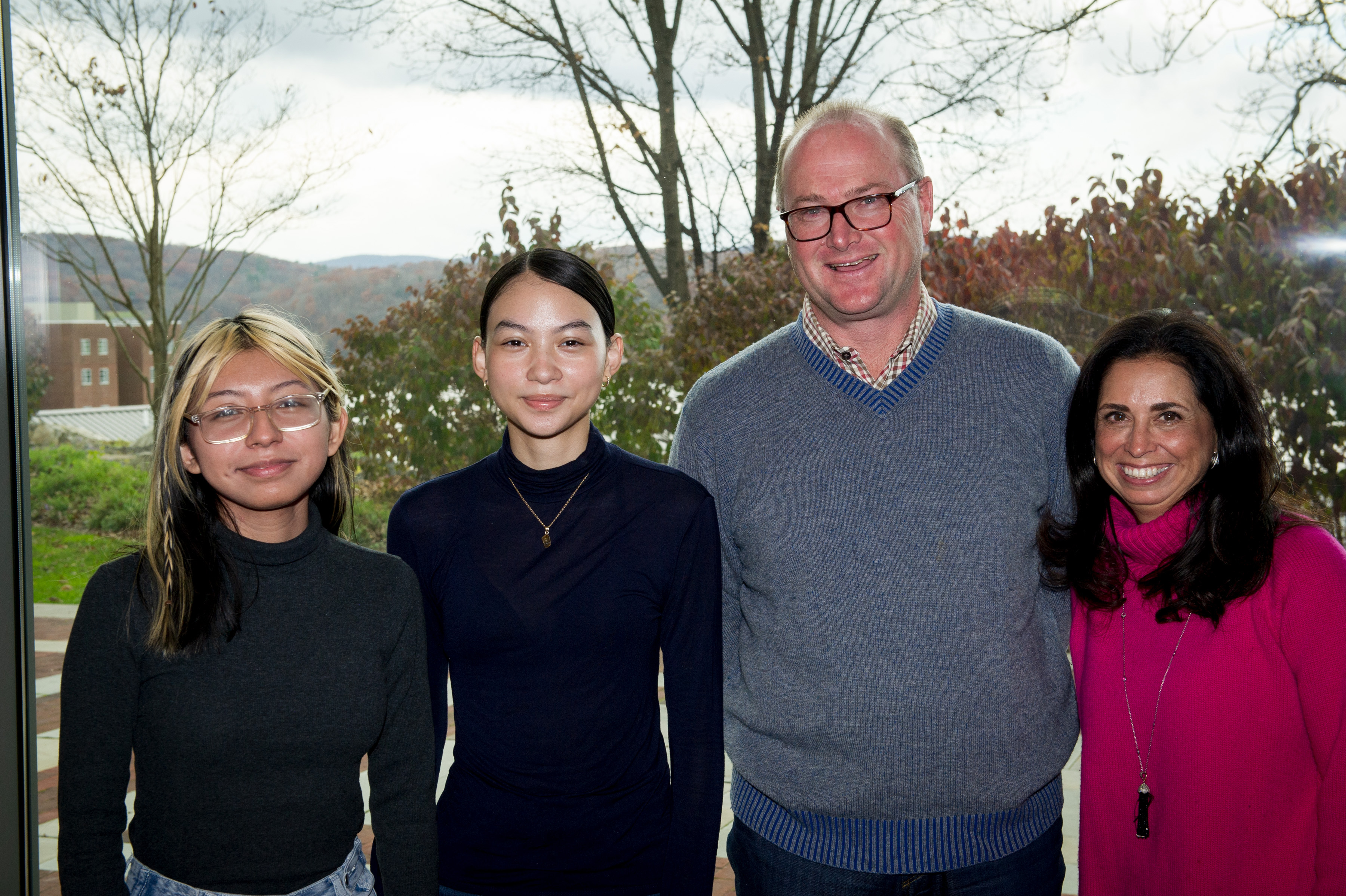
Two incoming Marist students have been selected to receive the newly established Gilder Lehrman Institute of American History (GLI) Scholarship at Marist College.
Two incoming Marist students have been selected to receive the newly established Gilder Lehrman Institute of American History (GLI) Scholarship at Marist College. The scholarship is awarded to students from GLI’s vast national network of affiliated schools who demonstrate exceptional achievement in the study of history.This unique and impactful collaboration between Marist College and GLI was cultivated and primarily funded by a family with longstanding commitments to both institutions. Trustee Genine McCormick ’88 and her husband, Michael ’88, made a very generous pledge to help establish this scholarship initiative in collaboration with GLI. About the Gilder Lehrman Institute of American HistoryFounded in 1994 by noted philanthropists Richard Gilder and Lewis E. Lehrman, GLI is widely recognized as one of the leading institutions in America dedicated to the promotion of knowledge and understanding of American history through educational programs and resources. The institute has an archive of more than 75,000 historical documents and provides educators, students, and the public with direct access to these unique primary resources. GLI also has an impressive network of more than 29,000 affiliated high schools around the country, and their programming reaches nearly five million students each year. As a 501(c)(3) nonprofit public charity the Gilder Lehrman Institute of American History is supported through the generosity of individuals, corporations, and foundations.The McCormick Family Foundation – Gilder Lehrman Institute Scholarship Program will be the cornerstone of an exciting partnership developing between Marist and GLI. The McCormicks’ support, combined with that of other donors, will provide meaningful term scholarships for 12 deserving students recognized as top high school history students by GLI’s recently launched National Academy of American History and Civics (NAAHC); NAAHC represents GLI’s highest-achieving, most accomplished students. Eight scholarships will be reserved for students with significant financial need, and the remaining four scholarships will be awarded exclusively based on academic merit. While recognized for their achievement in the study of history, scholarship recipients will not be required to major in history at Marist. The McCormicks’ gift also includes a generous allocation to establish a special society to more formally connect scholarship recipients through meetings, programming in conjunction with GLI and Marist, and an annual dinner. The society will add another important dimension to this distinctive program. Michael and Genine have had an immeasurable impact at Marist through their exceptional philanthropy and thoughtful leadership over many years. This signature program is yet another example of their dedication to students and unwavering commitment to advancing the College’s mission. Impressive Inaugural RecipientsThe inaugural recipients hail from New York and have impressive academic and extracurricular achievements:• Elisabet Guerrero Hernandez, from Manhattan Center for Science and Mathematics, NY, completed a research project with the Museum of Natural History and served as an intern at Fordham University’s History Makers program. Guerrero Hernandez is secretary of the Women’s Alliance Club and a member of her high school’s bowling varsity team. She is very interested in a career in adolescence education and aspires to be a history teacher.• Harumi Kameda, from Hyde Leadership Charter School, NY, is second in her class and is looking to find her niche at Marist. Kameda is the co-captain of her high school debate team, member of the National Honor Society, involved in Environmental Club, and plays saxophone in the pep band. She hopes to study pre-law and has an interest in history and environmental science.Through this partnership, Marist GLI scholars will make trips to the GLI office in New York City to access GLI’s extensive archives and participate in special programming and internship opportunities. For students with financial need, the scholarship will grow during their time at Marist, providing for increases in award amounts to eliminate the impact of annual tuition increases as well as matching funds for the money they earn through part-time employment.GLI students also will have the opportunity to participate in Marist’s highly ranked Summer Pre-College Program, which is also available to all students at GLI partner schools around the country. In addition, GLI students can take advantage of other special events and activities both on and off campus and avail themselves of the rich historic resources of the Hudson River Valley.A Strategic PartnershipThe collaboration with GLI is a complement to Marist’s deep work in the field of history. The College’s Hudson River Valley Institute studies and interprets regional history, hosts lectures every semester, and publishes a peer-reviewed journal, the Hudson River Valley Review. Numerous students intern with HRVI each year, learning valuable research skills.The College’s partnership with the Franklin D. Roosevelt Library and Museum makes it one of only six colleges and universities nationwide affiliated with a presidential library. Marist also hosts the Library’s digital archives.Among the first to join the McCormicks in generously supporting the scholarship initiative are Kimberly ’02 and Frank ’00 Viggiano, Jill ’02 and Mark ’00 Viggiano, Lisa and Scott Sweeney ’04, and Marist Trustee Pat Lavelle ’73. Eight scholarships remain to be sponsored in the program.Realizing the vision for this exciting new initiative will require the support of other generous Marist donors, and alumni, parents, and friends are invited to consider sponsoring and naming individual term scholarships offered within this innovative pilot. To learn more about this special opportunity, please contact Chris DelGiorno, vice president for college advancement, at chris.delgiorno@marist.edu or by phone at (845) 575-3412.
02 Aug 2021